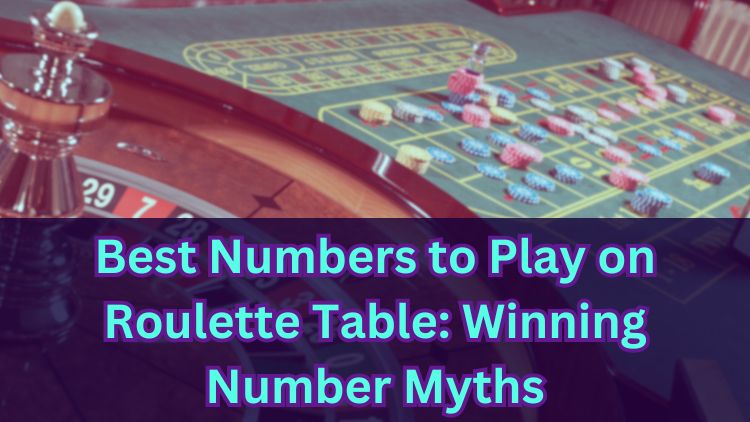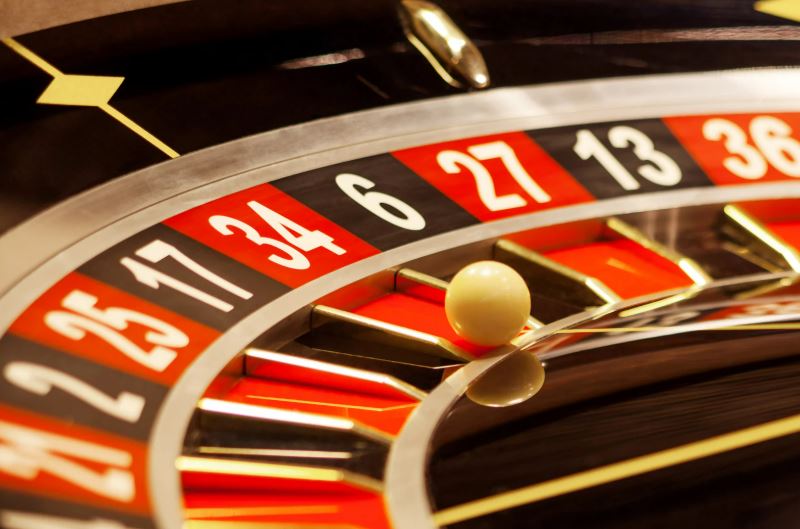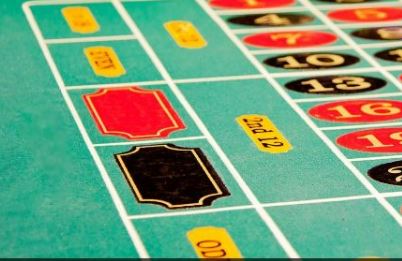
Whether you are new to roulette or have only seen the spinning wheel in films, you might wonder if some numbers are somehow better to pick than others. Stories about favourite spots and famous streaks tend to stick in the mind.
With so many tales about so-called winning numbers, it is easy to be drawn into patterns and beliefs. This article unpacks those ideas, explains how roulette actually works, and looks at what the odds really say for both land-based and online games.
Read on to see what sits behind the best-known number myths and how that translates into real decisions at the table.
What Makes Roulette Numbers Stand Out?
Roulette wheels each have numbers from 0 to 36. Each spin is its own event, yet people sometimes think certain numbers are more promising. These ideas often come from personal habits, patterns spotted by chance, or  stories shared by other players.
stories shared by other players.
Some numbers stand out because they are talked about more in popular culture or because someone has seen them win several times in a row. For example, 17 is mentioned frequently, partly because it sits near the centre of the betting layout and is easy to notice.
You may also see that the way numbers sit on the wheel looks irregular. In European roulette there is a single green 0, while American tables add a green 00. That extra pocket changes the maths slightly. On a standard European wheel, every number has a fixed chance of 1 in 37, which is about 2.7%. The built-in house edge comes from the presence of zero, so it could be worth knowing which version you are playing before you start.
Players should always remember to gamble responsibly and within their means- never wager more than you can afford to lose.
Do Certain Roulette Numbers Win More Often?
Each spin on a standard European wheel is random, so the ball can land on any number from 0 to 36 with the same probability mentioned above. There is no special treatment for any pocket, whether you are at a physical table or playing an approved online game.
With American roulette, the extra 00 pocket means there are 38 possible outcomes instead of 37, which slightly reduces the chance of any single pick. That is the only meaningful difference in how often numbers can appear between the two main versions.
Some players talk about numbers being “hot” or “cold” based on what has happened recently. Even if a number appears a few times close together, that does not change what happens next. Wheels in casinos and the software behind online roulette are independently tested to ensure outcomes are fair.
Common Myths About Lucky Roulette Numbers
It is common to hear someone claim that a certain roulette number is better than others, or that there are ways to pick a spot on the table that wins more often. A frequent example is the idea that 17 has something special about it, helped along by film scenes and anecdotes from the felt.
Another widespread belief is that “hot” numbers, those that have appeared a few times, are more likely to come up again. The flip side is the notion that a number that has not landed for a while is now “due.” This is the gambler’s fallacy, and it does not match how the game operates. Each spin is separate, so recent results do not affect the maths for the next one.
Advice passed down from friends or posts online can be persuasive, especially when tied to memorable streaks. The layout of the wheel and the way results are displayed can make coincidences look like patterns, but the underlying process remains random and regulated for fairness. There is no number that beats the fixed probabilities built into the game.
The Role of Red and Black in Roulette Outcomes
Roulette tables are known for their red and black layout. Numbers 1 to 36 are split evenly between the two colours, and 0 is shown in green. On American wheels, 00 is added in green as well. 
Many people enjoy choosing red or black. These are even-money bets, paying 1:1 when you are correct. While it can look like a straight 50/50, the green zero means the true chance is slightly lower. On a European wheel, red or black wins 18 times out of 37 spins on average, roughly 48.6%.
Some online games offer variations with slightly different layouts or side features, so it helps to glance at each game’s rules before playing. The green zero pocket is what shapes the house edge, not the colour choice itself, so the decision between red and black simply comes down to preference.
Is Zero Really the Most Important Number on the Wheel?
Zero plays a unique role in roulette. On European wheels, there is one green zero, while American versions include an additional double zero. A few variants add special rules, so checking a game’s information panel could be useful.
Zero does not belong to red or black, odd or even, or high or low. When the ball lands on zero, common even-money bets do not pay. That is how the house edge is created. On European roulette, that edge is about 2.7%.
Some tables include rules like la partage or en prison, where even-money bets are partially returned or held when zero lands. These rules reduce the house edge on those specific bets, although availability varies by game. Whatever the table rules, zero is treated like any other pocket in terms of randomness and has the same chance as any other single number on a European wheel.
Hot Numbers vs Cold Numbers: What Do They Mean?
You may have seen “hot” and “cold” numbers highlighted on a table display or on-screen during online play. In short, hot numbers are those that have appeared frequently in recent spins, while cold numbers have been quiet.
These displays are there to provide information, not signals. As covered earlier, roulette outcomes do not rely on what happened before. The wheel and, in digital games, the software do not track or react to streaks. A number that has just landed several times is no more likely, and a number that has not appeared for a while is not “waiting its turn.”
Watching these panels can be interesting, and they can add to the drama of a session, but they do not change the underlying probabilities for your next bet.
Should You Follow Patterns in Roulette Results?
Roulette games often show recent results, including runs of red or black, or repeats of a particular number. It is natural to look for patterns and to wonder if a sequence hints at what comes next.
Those histories are best treated as a record rather than a guide. Each spin is independent, so a series of reds or a scatter of similar numbers does not push the odds one way or the other on the next spin. Long streaks can and do happen, but they do not carry over any pressure into the next outcome.
If you enjoy the data, treat it as a snapshot of what has happened so far. It might add context to your session, but it cannot predict the following result.
How Random Number Generators Affect Online Roulette
Online roulette uses a random number generator, or RNG, to determine outcomes. This software selects results at random so that each spin is independent and cannot be predicted. Before games go live, and at regular intervals after that, accredited testing labs check that the RNG produces results within the expected ranges.
You will not see the RNG at work, but it is active from the moment you press spin. The aim is to mirror the unpredictability of a physical wheel. Many sites also offer live dealer roulette, where a real wheel is streamed and the ball is released in view. In both cases, the goal is the same: keep outcomes fair and ensure no number is favoured.
If you want the finer details for a particular title, open the game’s info section to see the rules, version, and any special features. Understanding how results are generated makes it easier to see through number myths and to focus on the parts of roulette you enjoy. Set clear limits, play within your means, and remember that every number, whether on a screen or a felt wheel, carries the same chance on each new spin.
**The information provided in this blog is intended for educational purposes and should not be construed as betting advice or a guarantee of success. Always gamble responsibly.
*All values (Bet Levels, Maximum Wins etc.) mentioned in relation to these games are subject to change at any time. Game features mentioned may not be available in some jurisdictions.
